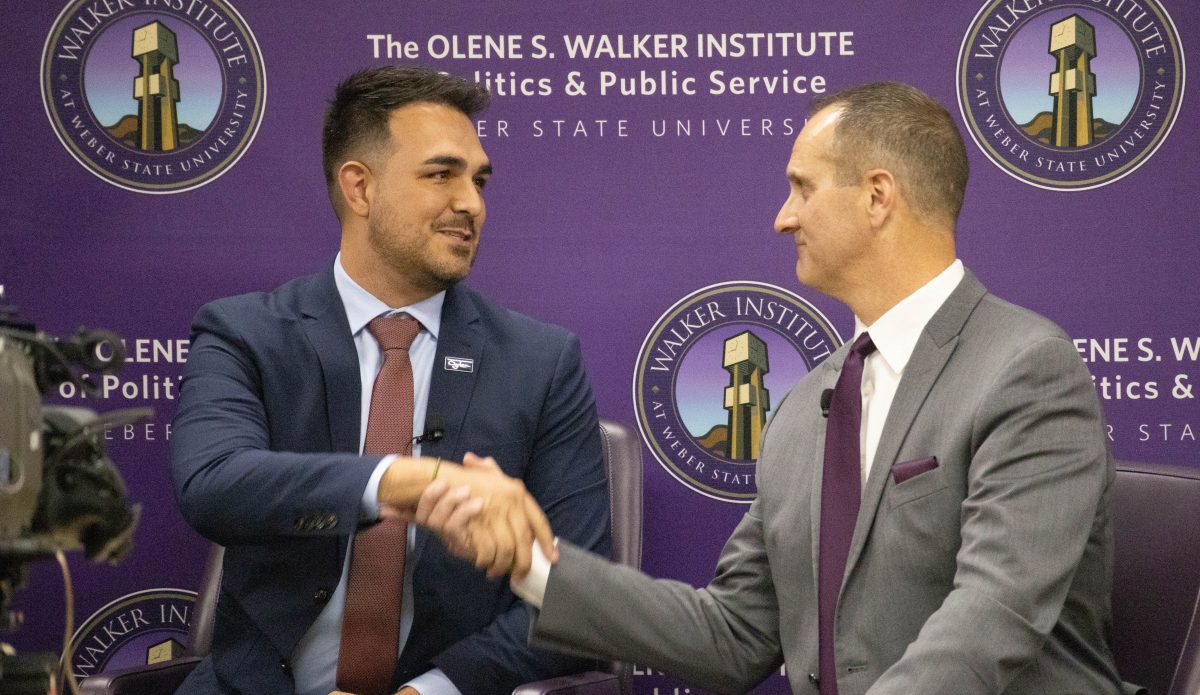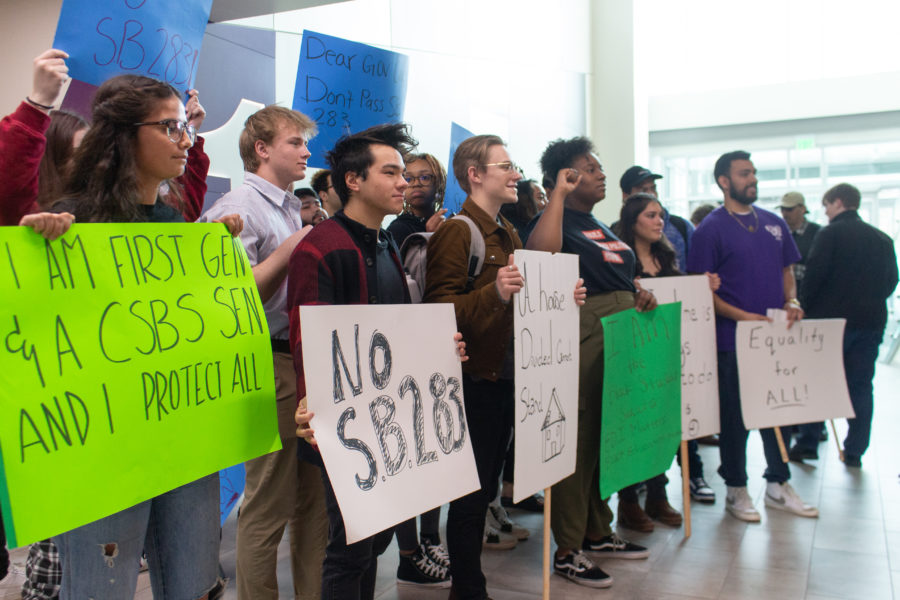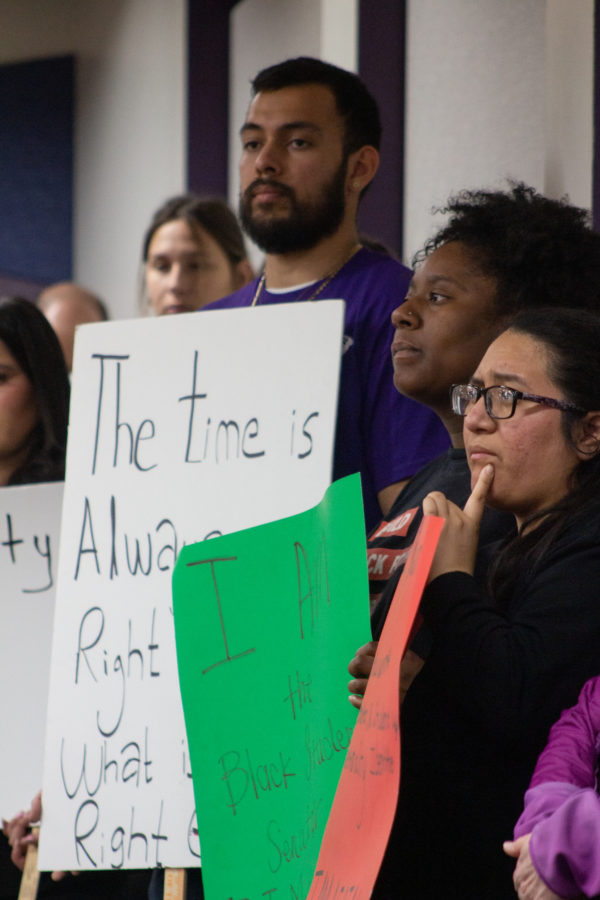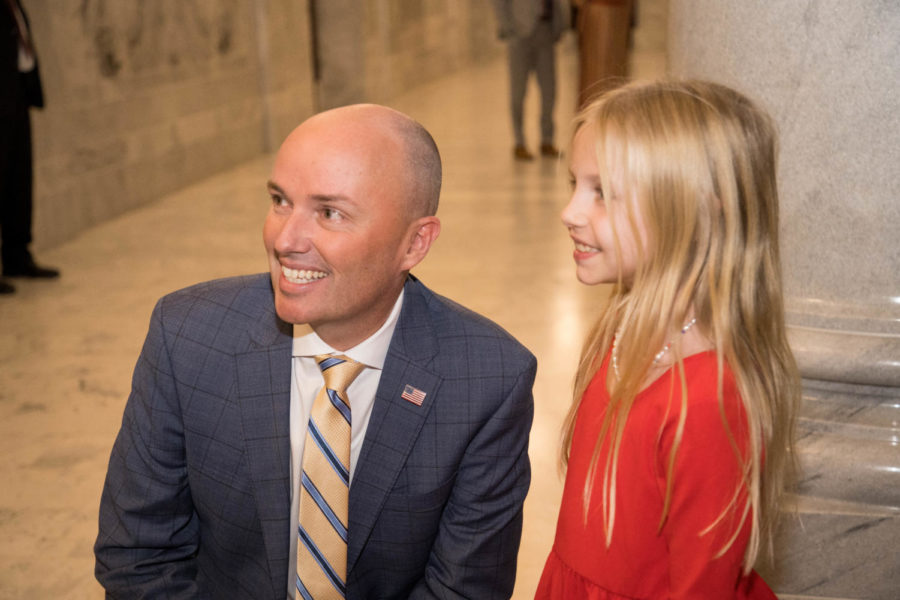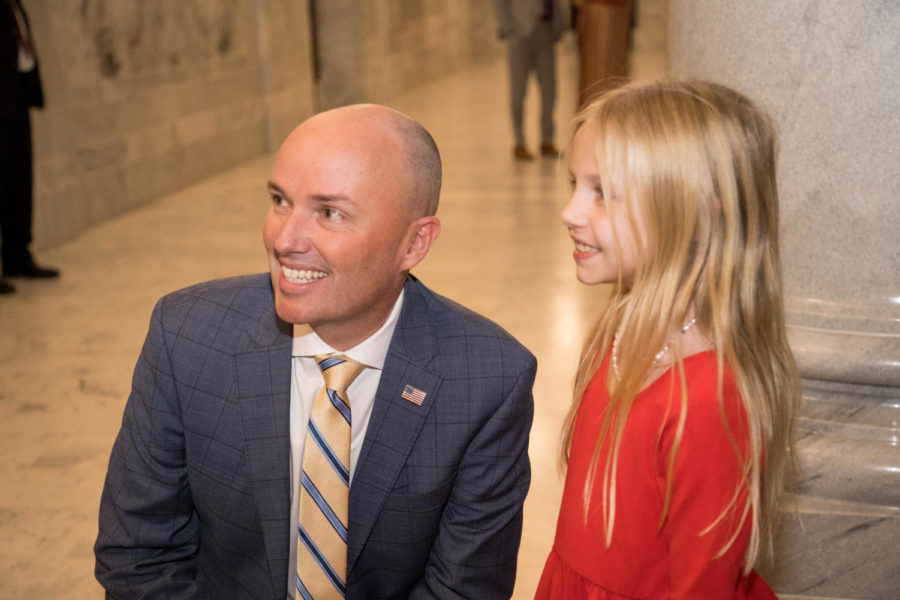
A debate broke out during an event at the Hurst Center for Lifelong Learning on Weber State University’s campus on Tuesday.
Sponsored by the Olene S. Walker Institute of Politics and Public Service, the event was part of a series to help students become more involved in politics. It featured Utah Lt. Gov. Spencer Cox, who talked to students and community members about how to become more involved with Utah’s caucus system. Lynda Pipkin, Weber County Republican Party vice chair, and Ben Pales, Weber County Democratic Party chair, also joined the event.
The event turned into a debate as many students and Weber County residents voiced opinions on the caucus system in Utah.
“It just so happens with the debate raging about Count My Vote and caucus, so that became that general focus of the event,” said Carol McNamara, director of the Walker Institute.
The Count My Vote Initiative has been collecting signatures on WSU’s campus and other places throughout the state for about 30 days. The petition seeks to allow voters to have a greater impact on the November ballot by changing Utah’s primary caucus system to a direct primary state.
In a caucus system, community members get together and elect delegates, who then vote for the party nominees. A nominee must get 60 percent of the delegates’ votes to win.
If no candidate gets 60 percent, a primary election between the top two candidates will be held. A direct primary state, the goal of the Count My Vote Initiative, involves party nominees being found through a direct election.
In order to be placed on the November ballot, the initiative would need about 110,000 signatures.
“We believe that is the most restrictive form of the election process to date,” said Abdullah Yaqiyn, a Count My Vote representative who has been collecting signatures on campus.
The initiative claims Utah should become a direct primary system, just as 49 other states have. Pales said he thinks this change would get more people involved in the voting process. He explained that, because so many people aren’t aware of how to get involved in the caucus system, it leads to disenfranchised voters.
Mike Burdett, a resident of Ogden, said that until the event on Tuesday, he had never heard of the caucus system. He said he had lived in Utah all his life, lobbied the state legislature, and still had no idea how to become more involved with the system.
Critics of the initiative say it would allow candidates to spend more money, and that name-recognition candidates would have the advantage.
“One of the cool things about the (current) caucus convention system is (that) every person who wants to be elected cares about every delegate,” Cox said. “They have to — statistically, one or two delegates can make the difference.”
Cox said he worries about what will become of the money involved if Count my Vote passes. Instead of having to reach out to a few delegates, one would reach a broader audience via TV ads.
Despite his personal opposition to the movement, Cox said he was sure it would get on the ballot, and was “99 percent sure” it will pass.
Dale Bennion, a resident of Roy, said he sees Count My Vote as a pretense to get rid of Sen. Mike Lee. He said Lee has a target on his back for not doing things the way the Washington establishment would like.
Given Lee’s ousting of incumbent Bob Bennett in the 2010 election, many political pundits believe Bennett’s loss came due to the caucus system.
Lee’s communication director, Brian Phillips, wrote in an email that the senator will listen to the voice of the people. “Senator Lee doesn’t see the need to change the current system, but if the people of Utah decide they want to change then he will certainly honor whatever they choose. He is sympathetic to the concern that changing the current system will hurt smaller rural counties which, under the current system, have an equal voice in the process.”
During Pipkin’s presentation, one woman in the audience said she was concerned that so few people get to make decisions for the state.
Pipkin compared the initiative to the idea of having everyone in the region select the WSU basketball’s team. She said the coaches and scouts pick the players because they are the ones who do the work and research and know the players, so they can make the best decisions.















